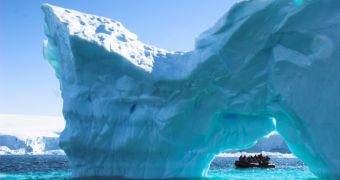The latest meeting of the Commission of the Conservation of Marine Living Resources (CCAMLR, for short) in Hobart, Australia came to an end this November 1.
According to preliminary information shared with the public, the countries present at the meeting have yet again failed to reach a consensus concerning proposals to set up marine reserves in Antarctica.
The New Zealand Herald reports that, although nobody has yet officially pointed the finger at them, China, Russia and Ukraine are the ones to blame for the failure of this meeting.
Green group the World Wildlife Fund (WWF) details that the purpose of this meeting was to discuss US and New Zealand's proposal to list 1.34 million square kilometers (0.51 million square miles) of the Ross Sea as a marine protected area.
Australia, France and the European Union proposal to list seven regions in East Antarctica covering a total of about 1.63 million square kilometers (0.62 million square miles) as marine protected areas was also on the agenda.
Unfortunately, both proposals ended up being rejected, chiefly because some countries care more about being able to fish in these waters than they are about protecting local marine wildlife, the organization says.
This happened despite the fact that, initially, the US and New Zealand said that 2.3 million square kilometers (0.87 million square miles) should be protected and later on agreed to downsize the proposed sanctuary to please China, Russia and Norway.
A previous meeting of the CCAMLR, which took place back in this year's July in Germany ended in much the same manner.
Commenting on the outcome of this latest meeting, Bob Zuur, a spokesperson for the (WWF) said that, “Lasting protection for these conservation values should be obvious. Yet the focus was on protecting fishing interests. The conservation principles enshrined in the CCAMLR convention will be questioned following this failure to reach agreement.”
“Action is needed urgently, and we expect the next meeting in 2014 to deliver on commitments to protect, in an ecologically meaningful way, one of the most vulnerable oceans on Earth,” he added.

 14 DAY TRIAL //
14 DAY TRIAL //